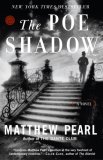Summary | Excerpt | Reviews | Beyond the book | Read-Alikes | Genres & Themes | Author Bio

Every major disaster brings with it a rash of "hot off the press" books; but it's best not to draw conclusions in the immediate aftermath. It takes more time than that for the dust to settle, the facts to become clearer and hindsight to give some perspective. The books that come later - those are the ones to watch for.
The Marauders is the product of time passing, and of thoughtful research and consideration. In a laconic, gently observant voice, Tom Cooper brings forth the unique flavor of a Louisiana bayou, the swamps, and the hardship of shrimpers trying to scrape together a living in the slick wake of the BP oil spill in 2010. Hurricane Katrina is not forgotten among many of his characters, including the Trenches, father-and-son shrimpers, whose matriarch drowned when a levee broke during the storm.
Cooper considers the issue of the oil spill through myriad perspectives, from the outrageous Jean Lafitte-obsessed, OxyContin-popping, one-armed treasure hunter Lindquist; to the dark, cruel Toup brothers and their marijuana farm in the bayou; to Grimes, who grew up in Jeannette and couldn't wait to get out of there, and who comes back with focused hatred of the place, while he convinces residents to sign papers for a share of BP's non-apology money. He's never known what home is, so he doesn't understand why people stay there. His story builds up to reuniting with his mother, whom he hasn't seen in some time, a meeting he's dreading. Although it's a necessary point, about the selective blindness of BP about how its oil spill affected people and wildlife, it doesn't feel like Grimes moves anywhere, from point A to a supposed point B. He's static in the midst of the rest of the liveliness of the novel.
Cooper's gentleness of language extends to his form as well. Characters briefly intermingle throughout the story and, at times, converge. The most obvious are two other characters, Cosgrove and Hanson, who are sentenced to community service detail because of public drunkenness (Cosgrove) and forged autographs (Hanson). They reunite at a facility dedicated to cleaning oil-drenched birds, which makes for one of the most fascinating passages of the novel, as Cooper delves into the working details of the facility.
This gentleness is juxtaposed with violence, some of which ends up disturbingly bloody. The Marauders is categorized as a crime novel but not in the sense of justice prevailing. It's more in the sense of lawlessness in a part of Louisiana that seems to reluctantly allow it, simply because no one knows quite what to do. Yet another character, Sheriff Villanova, who clearly has to deal with a lot, can only do so much himself. And while it's not necessarily the right way, it is the way for this mysterious landscape.
Cooper's intricate, accessible weaving of his characters with each other, and his deep, delightfully eccentric descriptions of this area of Louisiana – where else are you going to find a Donald Duck Pez dispenser used for pills? – show that he's just beginning what will hopefully be a satisfying career as a novelist. There are infinite possibilities for him to mine in the South, and the region may become even more interesting through his imagination, giving our imaginations much to experience.
![]() This review was originally published in The BookBrowse Review in March 2015, and has been updated for the
November 2015 edition.
Click here to go to this issue.
This review was originally published in The BookBrowse Review in March 2015, and has been updated for the
November 2015 edition.
Click here to go to this issue.

If you liked The Marauders, try these:

by Richard Preston
Published 2008
Richard Preston unfolds the spellbinding story of Steve Sillett, Marie Antoine, and the tiny group of daring botanists and amateur naturalists that found a lost world above California, a world that is dangerous, hauntingly beautiful, and unexplored: The world of the largest and tallest organisms the world has ever sustained – the coast redwood...

by Matthew Pearl
Published 2007
Through the eyes of a Baltimore lawyer named Quentin Clark, Pearl opens a new window on the truth behind Poe’s demise, literary history’s most persistent enigma.
Your guide toexceptional books
BookBrowse seeks out and recommends the best in contemporary fiction and nonfiction—books that not only engage and entertain but also deepen our understanding of ourselves and the world around us.